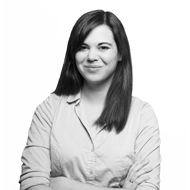Why Young Millennials Are Turning Down Health Coverage at Work

New college grads want a job, but they can take or leave the health insurance benefits that come with it. Less than half of all eligible employees under age 26 enrolled in an employer-provided health plan in 2015, according to a new report out today from the ADP Research Institute.
But don't worry about the rest. Under the Affordable Care Act, young adults are allowed to stay on their parents' health insurance plan until they turn 26. And that's probably what many are doing, says Chris Ryan, vice president of strategic advisory services at ADP. "There are lot of people who do value health coverage very much, but they want to stay on their parents’ plan as long as possible," Ryan says.
Why Young Workers Have More Options
The provision that lets young adults keep their parents' health insurance until age 26 has been one of the most popular parts of Obamacare. It was also one of the first provisions to go into effect. Between September 2010 and December 2011, more than 3 million adults aged 19 to 25 got private health insurance largely thanks to the ACA, according to the Department of Health and Human Services.
A lot has changed since 2011. More millennials have entered the workforce, and a greater number have become eligible for health benefits. Today, 83% of employees under 26 are eligible for health insurance at work, up 8.5% from five years ago. Still, fewer millennials have actually enrolled in their employers' plans. In 2011, almost 57% of young millennials who were eligible for employer-subsidized health coverage took it; this year, only 44% did.
One sign that many of these young adults are ditching their employer's plans for their family's plan: Once employees are too old to stay their parents' plans, they're much more likely to sign up for employer coverage. Three-quarters of eligible employees aged 26 to 39 enrolled in an employer health plan, the survey found.
Happily, after widespread concerns that young people would not sign up for health insurance, the vast majority are now covered one way or another. Nationally, 83.2% of Americans aged 18 to 25 now have health insurance, up from 76.5% in the last quarter of 2014, according to a recent Gallup poll. Today, there are 4.5 million more insured young adults who would not otherwise had coverage, according to the White House.
When Mom and Dad's Plan Has the Edge
For millennials just starting out, however, health insurance premiums can still eat up a large part of their meager incomes. ADP found that employees earning $15,000 to $20,000 spent 9.5% of their annual income on premiums. Employees earning $45,000 to $50,000 devoted 5.8% of their income to premiums, while employees earning more than $120,000 spent just 2.3% of their income on premiums.
So even if young millennials have jobs with health benefits, the family plan is often the better deal. "Most millennials in their early 20s have entry-level salaries, so it's attractive for our generation to get on a parent's comprehensive plan for health and financial security," writes Erin Hemlin, health care campaign director of Young Invincibles, a millennial research and advocacy group.
ADP found that individual premiums cost $486 a month, on average. But add two or more dependents to the plan, and premiums cost an average of $1,377 a month—which, split three or four ways, is less than an individual plan.
"There’s no question—it is usually cheaper for someone to be an additional dependent rather than pay for single coverage," Ryan says. And then there are the tax benefits. "Because the premiums are on a pre-tax basis and parents are usually in a higher income bracket than their children, the parents are getting a better tax break, and the insurance overall is cheaper," Ryan says.
Still, there are downsides to staying on a parent's plan. If you don't live near your parents, make sure you can find local doctors that are in your parents' insurance network before you turn down health benefits at work. And consider if you want your bills and explanation of benefit statements mailed to your parents. Not sure what to do? Here's more on how to decide— or shop for an individual plan on your own if you're not getting coverage at work.
